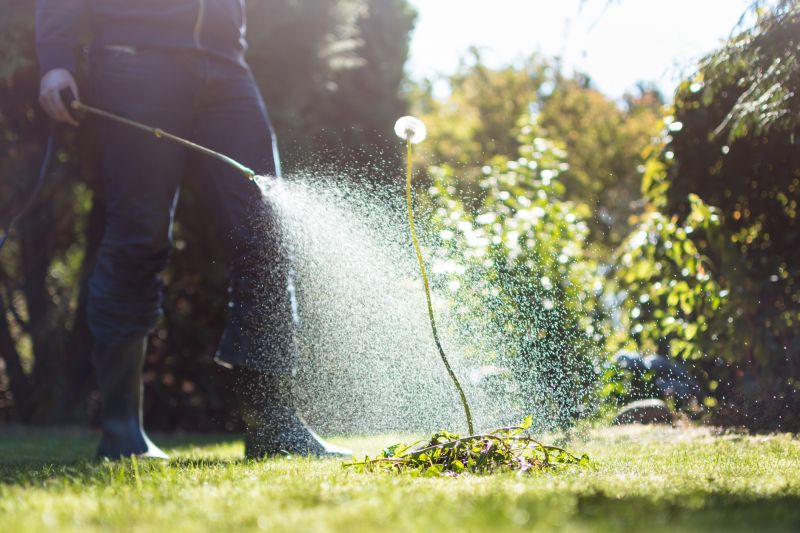Top Water Testing Instruments for Precise Water Analysis
Identify high-performance water testing instruments crafted for detailed analysis and dependable results.
 Water testing products encompass a wide range of tools designed to analyze various water parameters for different purposes. These tools are essential for homeowners, hobbyists, laboratory professionals, and industry experts who need to assess water quality accurately. From simple test strips to sophisticated electronic meters, the variety of products available caters to different levels of precision and ease of use.
Water testing products encompass a wide range of tools designed to analyze various water parameters for different purposes. These tools are essential for homeowners, hobbyists, laboratory professionals, and industry experts who need to assess water quality accurately. From simple test strips to sophisticated electronic meters, the variety of products available caters to different levels of precision and ease of use.
Top Overall Option
Multi-Parameter Digital Water Tester
A versatile digital water tester that measures multiple parameters such as pH, temperature, dissolved oxygen, and electrical conductivity. Its user-friendly interface and quick readings make it suitable for various applications, from home water quality checks to professional laboratory settings.
Types of Products For Water Testings
Test Strips
Simple and quick strips that provide colorimetric results for various water parameters.
Digital pH Meters
Electronic devices designed to measure water pH levels with high accuracy.
Turbidity Meters
Tools used to assess water clarity by measuring the concentration of suspended particles.
Dissolved Oxygen Testers
Devices that determine the amount of oxygen dissolved in water, important for aquatic health.
Conductivity Meters
Instruments that measure the electrical conductivity of water, indicating ion concentration.
Total Dissolved Solids (TDS) Meters
Portable devices to estimate the total amount of dissolved solids in water.
Chemical Test Kits
Laboratory-grade kits that test for specific contaminants or chemical concentrations.
Spectrophotometers
Advanced instruments that analyze water samples based on light absorption for detailed chemical analysis.
Ion-Specific Meters
Tools designed to measure particular ions like nitrate, nitrite, or ammonia.
Portable Water Analyzers
Compact devices capable of on-the-go testing for multiple water quality parameters.
Laboratory Testing Kits
Comprehensive kits for detailed analysis, often requiring sample collection and lab processing.
Colorimeters
Instruments that determine the concentration of substances based on color intensity.
Flow-Through Water Testers
Continuous monitoring devices suitable for industrial or environmental applications.
Aquarium Water Test Kits
Specialized kits to monitor water quality parameters specific to aquariums.
Pool Water Test Kits
Tools designed for routine testing of swimming pool water safety and quality.
Industrial Water Testers
High-precision instruments used in industrial settings for compliance and safety.
UV-Vis Spectrophotometers
Advanced devices for detailed chemical analysis based on ultraviolet and visible light absorption.
Electrochemical Sensors
Sensors that detect specific ions or molecules through electrochemical reactions for real-time monitoring.
Popular Choices
Widely used for accurate pH measurements in various water testing scenarios.
Popular for quick assessments of parameters like chlorine, alkalinity, or hardness.
Commonly used to estimate total dissolved solids in drinking and process water.
Frequently employed in aquaculture and environmental testing.
Popular for assessing ion concentration in various water samples.
Convenient kits for homeowners to monitor their water quality regularly.
Compact devices favored for field testing by professionals.
Valued for their simplicity and affordability for multiple parameter testing.
Used in laboratories for detailed chemical analysis of water samples.
Popular for targeted testing of specific contaminants like nitrates.
Preferred in industrial environments for compliance monitoring.
Chosen for detailed chemical profiling in research and laboratory settings.
Valued for real-time monitoring in various water treatment applications.
For those seeking quick and straightforward assessments, test strips and colorimetric kits are popular choices. They typically involve immersing a strip into water and comparing the resulting color change to a chart. These methods are convenient for routine checks but may offer limited precision. On the other hand, digital meters and electronic testers provide more detailed readings, often measuring multiple parameters simultaneously and offering digital displays for ease of interpretation.
Laboratory-grade testing kits are available for more comprehensive analysis, capable of detecting a broad spectrum of contaminants and chemical levels. These kits often require some basic knowledge of water chemistry and may involve sample collection and laboratory procedures. Meanwhile, specialized testers focus on specific parameters such as pH, dissolved oxygen, or specific ions, providing targeted insights for particular applications.
Choosing the right water testing product depends on the specific needs, budget, and desired level of accuracy. Whether testing for general water safety, aquarium health, or industrial compliance, selecting the appropriate tool ensures reliable results. Proper maintenance and calibration of these devices are also crucial to maintain accuracy over time.
Key Buying Considerations
- Determine the specific parameters you need to test for, such as pH, dissolved oxygen, or contaminants.
- Assess the level of accuracy and precision required for your application.
- Consider whether a portable device or a laboratory-grade kit best suits your needs.
- Check the ease of use and whether the device requires calibration or maintenance.
- Evaluate the speed of results and whether real-time data is necessary.
- Look into the compatibility of test strips or reagents with your water type.
- Review the device's durability and suitability for field or laboratory environments.
- Consider the number of parameters the device can measure simultaneously.
- Examine the availability and cost of replacement parts or reagents.
- Determine if the device has digital data logging or connectivity features for record-keeping.
- Assess the size and weight for portability if field testing is a priority.
- Check for certifications or standards compliance relevant to your industry.
- Consider budget constraints while balancing the need for accuracy and features.
- Read customer reviews and ratings for insights into reliability and performance.
- Verify warranty and customer support options to ensure ongoing assistance.
